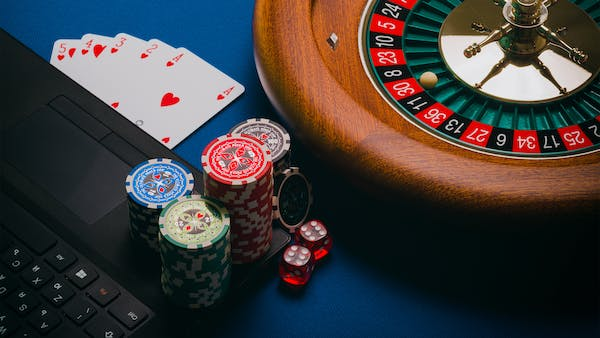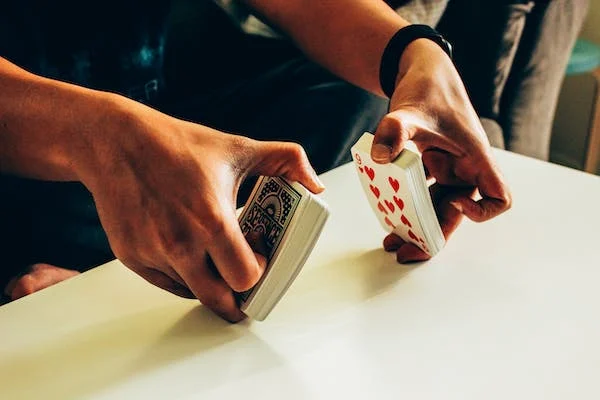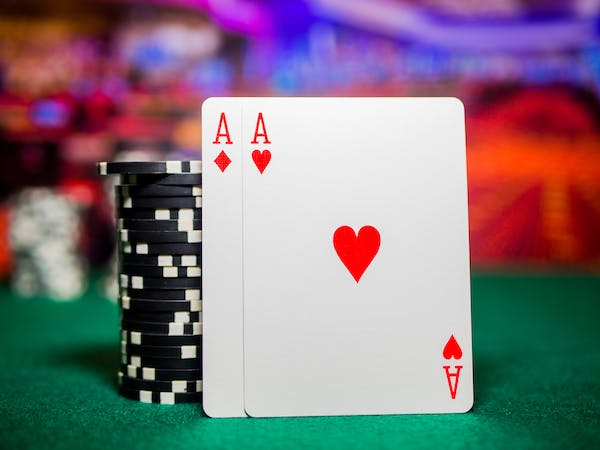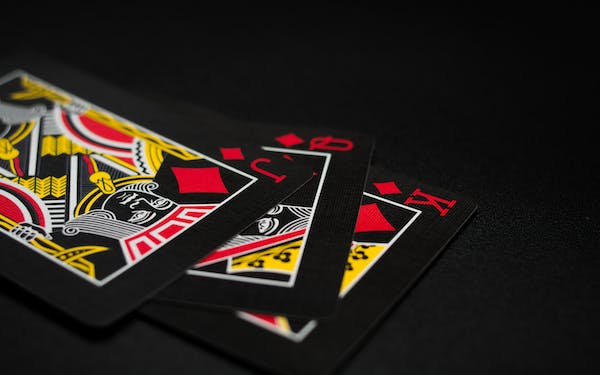Unique Ways to Help Yourself Get Better at Poker Games
Anyone who has ever played several poker games knows that there is more to it than simply relying on luck. To succeed, players must develop strategies and techniques that will help them win more often. While some people may depend on their natural talents or instincts, there are many ways to improve your skills at poker. In this blog post, we will discuss some unique methods you can use to get better at playing poker games.
1. Understand the odds of the game.
One of the most important aspects of playing poker is understanding the game’s odds, which means knowing how likely you are to win or lose at the poker table based on the cards you are holding. While some people can estimate these odds instinctively, it is always helpful to calculate them before making any decisions. Many online resources can help you do this, or you can ask a friend who is good at math to help you.
2. Know when to fold.
There is no shame in admitting when you are beat. One of the biggest mistakes that novice poker players make is holding onto their cards for too long, even when they know they will lose. If you are in a hand and don’t think you can win, it is usually best to fold rather than continue betting and losing more money.
3. Practice makes perfect.
To get better at poker, you need to practice as much as possible, which means finding opportunities to play against people who are better than you and trying different techniques. Many online resources can help you find opponents, or you can attend local tournaments.
Photo from Pexels
4. Be patient.
Patience is a virtue in poker, as well as in life. Many novice players make the mistake of getting too aggressive early in the game. While it is essential to be assertive, you also need to know when to hold back. If you are patient and wait for the right opportunity, you will be more likely to win the poker chips.
5. Pay attention to your opponents.
One of the best ways to improve your poker skills is by paying attention to your opponents. This means trying to read their body language and facial expressions. If you can get a sense of what they are thinking, you will be better equipped to make the right decisions.
6. Bluff sparingly.
While bluffing can sometimes be effective, it should not be overused. If you are constantly bluffing, your opponents will eventually catch on and you will no longer be able to fool them. Only use this tactic sparingly and when you are confident that it will work.

Photo from Pexels
7. Don’t show your emotions.
Poker is a game of psychology as much as it is a game of chance. If you want to be successful, you need to learn how to control your emotions. This means not letting your facial expressions give away what you are thinking. If you can keep a poker face, you will be more likely to win the pot.
8. Be prepared to lose.
No one likes to lose, but it is essential to be prepared for it. Poker is a gambling game, and there is always the possibility that you will lose money. Before you start playing, set aside an amount of money you are willing to lose. This way, if you lose, you will not be as upset.
9. Don’t play when you are drunk.
This tip should go without saying, but it is crucial not to play poker when drunk. Alcohol impairs your judgment and makes you more likely to make bad decisions. If you want to win, it is best to keep a clear head.

Photo from Pexels
10. Take breaks.
If you are frustrated or angry, taking a break from playing poker is essential. Doing this will help you clear your head and come back with a fresh perspective. There is no shame in taking a break, especially if you come back and win the pot.
11. Have fun.
Poker is a game, and it should be enjoyable. If you are not having fun, you will not play your best. Remember that the whole point of playing poker is to win money, so if you are not enjoying yourself, there is no point in playing.
12. Manage your bankroll.
Your bankroll is the money you have set aside to use for poker. It is essential to manage this carefully, so you do not run out of money. Only bet what you can afford to lose, and be sure to withdraw your winnings regularly so you do not get too deep into debt.

Photo from Pexels
13. Set limits.
It is important to set limits for yourself so that you do not get too carried away with playing poker. If you are losing money, it is time to stop and walk away. There is no point in continuing to play if you are only going to lose more money.
14. Know when to quit.
There will be times when you are ahead and times when you are behind. It is important to know when to quit while you are ahead. If you keep playing, there is a chance that you will lose all of your winnings. Walk away while you are still ahead and enjoy your winnings.
15. Find the right game.
Not all poker games are created equal. You need to find a game that suits your skill level and your bankroll. If you are a beginner, it is best to start out in a low-stakes game. GG Poker provides many types of poker games to suit your needs. As you become more experienced, you can move up to higher stakes games.
Poker is a game that takes time and patience to master. However, there are ways for you to improve your skills without having to spend hours at the table. Sign up with GG Poker today and take advantage of the many learning tools, including tutorials, strategy articles, and more. With GG Poker, you can become a better poker player in no time.
Recommended For You
How Has Online Gambling Become So Popular In Indonesia?
Most Inside
Most Inside offers high-quality recommendations and valuable updates to enhance all aspects of your life, providing premium guidance and enriching experiences.





